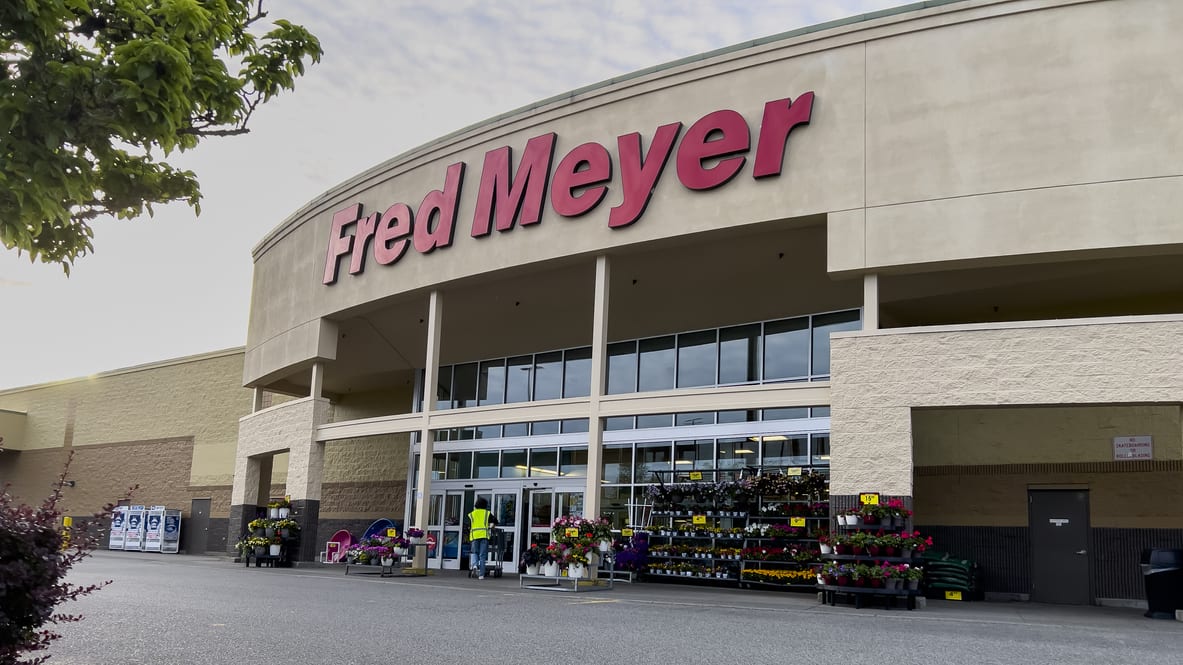Fred Meyer Stores, a supermarket chain based in Portland, Ore., illegally disciplined workers for wearing items with the Black Lives Matter logo, a National Labor Relations Board (NLRB) administrative judge recently ruled.
Prohibiting workers from wearing Black Lives Matter slogans violated the workers' rights to voice their opinions about working conditions, Judge Mara-Louise Anzalone concluded on May 3. She ordered the company to revise its dress code, offer back pay to workers who were sent home due to dress code enforcement, and delete from its records any references to discipline or warnings given to these workers because of dress code enforcement.
In the summer of 2020, the company required employees to remove their buttons, face masks and other attire expressing support for the Black Lives Matter movement. A labor union, United Food and Commercial Workers Local No. 21, claimed the company violated the National Labor Relations Act (NLRA) by interfering with workers' rights to collectively discuss wages, benefits, terms and conditions of employment. The union said the company illegally changed its dress policy without giving the union the chance to negotiate.
Fred Meyer Stores' written dress code did not allow unauthorized buttons and logos, but it included exceptions for certain holidays, sponsored events, sports gear on game days during football season, and LGBTQ-related buttons during Pride Month. Fred Meyer Stores is a subsidiary of The Kroger Company, a retail chain.
The judge found that in practice, employees and managers often ignored the dress policy. For example, employees often wore union buttons and movie-related buttons, and they weren't asked to remove those buttons.
During this time, there were widespread protests throughout the country in response to the death of George Floyd, a Black man who was killed by a white police officer in Minneapolis. Black workers in Fred Meyer Stores sometimes experienced microaggressions and racial harassment from customers. Some white employees viewed wearing a Black Lives Matter logo as a sign of support for their Black co-workers.
After the company sent employees home without pay for wearing Black Lives Matter logos, employees complained that the action didn't align with Kroger's professed support for the Black Lives Matter movement. They demanded to know why the Black Lives Matter logos were being treated differently from LGBTQ Pride logos, according to the ruling. Kroger did not respond to a request for comment.
Judge's Ruling
In general, employees' efforts to address racial discrimination in the workplace can meet the legal standard to qualify as concerted activity undertaken for mutual aid and protection, the judge noted. Furthermore, employees who question the sincerity of their employer's publicly professed values may also be engaged in protected conduct, where their doing so aims to improve their working conditions or those of others, the ruling noted.
In this case, "the issue was not just outside the workplace, but affected their lives within the workplace," said Shannon Liss-Riordan, a workers' rights attorney with Lichten & Liss-Riordan in Boston.
Fred Meyer Stores argued that requiring the company to allow Black Lives Matter gear would violate its constitutional rights based on the "forced speech" doctrine. It also claimed that displaying Black Lives Matter slogans shouldn't be classified as protected activity because then employers would have to permit slogans with opposing views, some of which might subject Black workers to hate speech. The judge rejected those two arguments.
Dress code restrictions may be justified if necessary to ensure employee safety, prevent damage to machinery or products, lessen employee dissension or prevent harm to the employer's public image. The judge found that Fred Meyer Stores didn't meet the criteria for those special circumstances.
Court Decisions
Contrasting the NLRB action, a federal judge in January rejected retaliation charges against Whole Foods Market over its policy prohibiting employees from wearing Black Lives Matter slogans. The U.S. District Court for the District of Massachusetts ruled in favor of the Amazon-owned supermarket chain, finding that the employees didn't prove Whole Foods had discriminatory or retaliatory motives when it fired workers who wore Black Lives Matter face masks.
However, in June 2022, the 3rd U.S. Circuit Court of Appeals ruled that a municipal bus and light-rail operator could not enforce its ban on employees wearing Black Lives Matter face masks. The employees who challenged the policy claimed the ban violated their free speech rights under the First Amendment to the U.S. Constitution.
"The events of 2020 led many corporations to speak out about social issues, which many have typically not done in the past," Liss-Riordan said. "Employees felt empowered to speak about them because their bosses were speaking about them. Employers need to be careful about conveying the message that 'It's OK for me to say things, but not OK for you to say things.' "
Tips For Employers
If dress codes aren't enforced consistently, it can lead to discrimination or retaliation lawsuits. "Consistency is key. Employers should make sure management understands the policies and that they're applied equally across the board," said Michael Elkins, an attorney with MLE Law in Ft. Lauderdale, Fla.
Depending on the terms of any collective bargaining agreement with a union, a change to the company dress code may require bargaining.
"Regardless of whether their workforce is unionized, employers should be mindful when disciplining a group of employees for all engaging in the same conduct. Collective activity by employees may implicate the NLRA," Elkins said.
An organization run by AI is not a futuristic concept. Such technology is already a part of many workplaces and will continue to shape the labor market and HR. Here's how employers and employees can successfully manage generative AI and other AI-powered systems.




